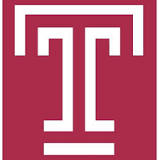Treatment for Young Adults With Anorexia Nervosa
| Status: | Completed |
|---|---|
| Conditions: | Psychiatric |
| Therapuetic Areas: | Psychiatry / Psychology |
| Healthy: | No |
| Age Range: | 18 - 30 |
| Updated: | 4/2/2016 |
| Start Date: | July 2010 |
| End Date: | March 2014 |
| Contact: | Eunice Y Chen, PhD |
| Email: | eunice.chen@temple.edu |
| Phone: | (215) 204-2645 |
Family-Based Treatment for Weight Restoration in Young Adults With Anorexia Nervosa
Temple University is conducting a National Institute of Health funded research study
designed to develop and refine a family-based treatment manual for young adults with
Anorexia Nervosa as well as assess the feasibility of this out-patient psychotherapy.
designed to develop and refine a family-based treatment manual for young adults with
Anorexia Nervosa as well as assess the feasibility of this out-patient psychotherapy.
Anorexia Nervosa (AN) is a serious psychiatric illness that occurs in an estimated 0.5 to
3.7% of women. The illness severely affects physical, emotional, and social functioning. The
mortality rates associated with this severely disabling condition are higher than those for
any other psychiatric disorder and substantially higher than those expected in the general
population. Lower weight at presentation, longer illness duration, and alcohol abuse are
associated with a higher risk of mortality.
Treatment-outcome for adult AN is poor with a quarter of adults with AN having poor outcome.
In AN, promising outcomes are seen in family-based treatment (FBT) for adolescent patients
who present between the ages of 12 to 18 with a short duration of illness. A manualized
version of FBT has now been tested in several studies and case series, showing that well
over 80% of participants had good or intermediate outcome at post-treatment. Despite its
efficacy with adolescents, FBT has not been utilized with young adults.
The purpose of this study is to develop and refine FBT to promote weight gain in young
adults with Anorexia Nervosa.
3.7% of women. The illness severely affects physical, emotional, and social functioning. The
mortality rates associated with this severely disabling condition are higher than those for
any other psychiatric disorder and substantially higher than those expected in the general
population. Lower weight at presentation, longer illness duration, and alcohol abuse are
associated with a higher risk of mortality.
Treatment-outcome for adult AN is poor with a quarter of adults with AN having poor outcome.
In AN, promising outcomes are seen in family-based treatment (FBT) for adolescent patients
who present between the ages of 12 to 18 with a short duration of illness. A manualized
version of FBT has now been tested in several studies and case series, showing that well
over 80% of participants had good or intermediate outcome at post-treatment. Despite its
efficacy with adolescents, FBT has not been utilized with young adults.
The purpose of this study is to develop and refine FBT to promote weight gain in young
adults with Anorexia Nervosa.
Inclusion Criteria:
- Meet DSM-IV criteria for AN (restricting/binge-purge type) (BMI 16.0-18.5)
- Medically stable for outpatient treatment
- Availability of at least one supportive adult of choice in study client's environment
- Stable dose of psychotropic medication (8 weeks) for co-morbid condition
Exclusion Criteria:
- Associated physical illness that necessitates hospitalization
- Psychotic illness or other mental illness requiring hospitalization
- Current dependence on drugs or alcohol
- Physical conditions (e.g. diabetes mellitus, pregnancy) known to influence eating or
weight
- Previous Family-Based Treatment for Anorexia
We found this trial at
1
site
Temple University Temple University is many things to many people. A place to pursue life's...
Click here to add this to my saved trials
